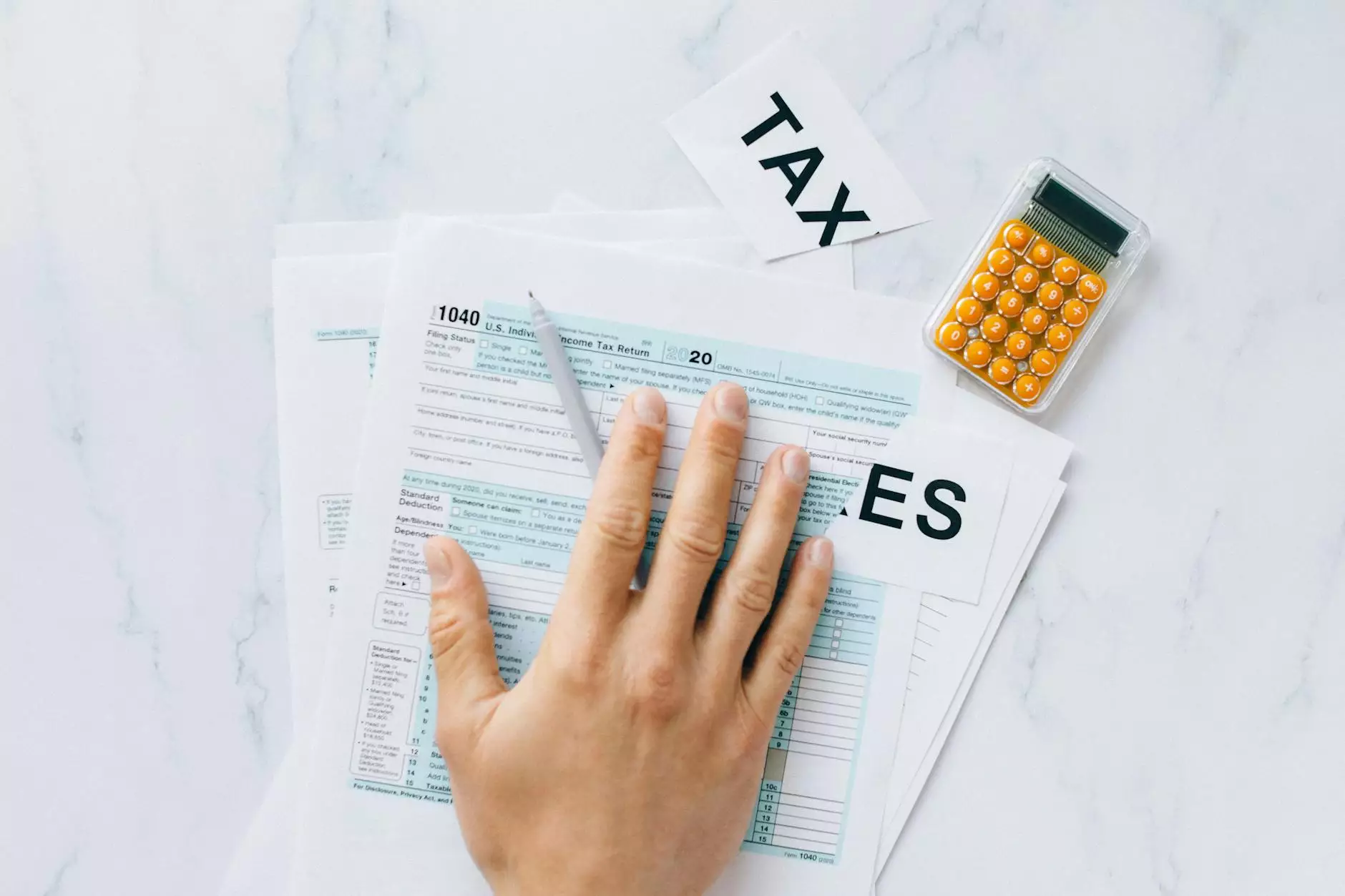How Long Should You Keep Your Tax Returns? A Comprehensive Guide

When it comes to managing your financial documentation, particularly regarding taxes, one question often arises: how long should you keep your tax returns? This is not merely an inquiry about record-keeping; it's a necessity for ensuring you're protected and prepared for potential audits or discrepancies. In this extensive guide, we will explore the significance of maintaining your tax returns and the recommendations made by financial experts and the IRS.
The Importance of Keeping Tax Returns
Keeping your tax returns is not just about safeguarding information; it's about maintaining control over your financial future. Here are several reasons why retaining these documents is vital:
- Proof of Income: Your tax returns serve as proof of your income and can be crucial for various financial transactions, such as applying for loans or mortgages.
- Verification for Tax Credits: Many eligible tax credits and deductions require you to provide records of your previous tax filings.
- Audit Preparedness: If the IRS conducts an audit, having accessible tax returns can streamline the process and reduce your stress.
How Long Should You Keep Your Tax Returns?
The general consensus among tax professionals is that you should keep your tax returns for a minimum of three years. However, the duration may vary based on specific circumstances, which we will outline below:
3-Year Rule
The IRS recommends retaining your tax returns for at least three years if you:
- Filed your return on time
- Reported all your income accurately
The three-year mark begins from the date you filed your return, not necessarily from the due date. This period is deemed sufficient because the IRS typically has three years from the date of your return to initiate an audit.
6-Year Rule
If you significantly underreported your income (by 25% or more), you should maintain your tax returns for six years after the filing date. Here's what you need to know:
- Importance: Underreporting income can raise red flags with the IRS, and they have a longer timeframe to review your return if they suspect discrepancies.
- Examples: If you received a 1099 form that adds income you didn’t report, it may trigger a longer audit window.
Indefinite Retention for Certain Situations
There are circumstances under which you should keep your tax returns indefinitely:
- No Returns Filed: If you never filed a return for a year, the IRS can pursue you indefinitely.
- Fraud Cases: If a fraudulent return was filed or if you didn't report money from a foreign account, you need to keep your returns indefinitely.
Other Important Tax Documents to Keep
In addition to your tax returns, there are several other documents that need to be preserved for varying lengths of time:
- W-2 Forms: Keep these for at least 3 years, as they show your earnings and the taxes withheld.
- 1099 Forms: Similar to W-2s, retain these for 3 years.
- Receipts for Deductions: Hold onto these for at least 3 years as well, especially if they are related to deductible expenses.
Organizing Your Tax Documents
Understanding how long should you keep your tax returns also involves an efficient organization system. Here are some tips:
- Create a Dedicated Space: Designate a specific folder or digital space for all tax-related documents.
- Use Labels: Clearly label documents with years and categories (e.g., "2019 W-2", "2019 Tax Return").
- Go Digital: Consider scanning documents and storing them digitally for easier access and backup.
What to Do With Old Returns and Documents
After the retention period, it's essential to handle old returns and documents properly:
- Shred Paper Copies: For physical copies, shredding is the safest way to dispose of sensitive information.
- Backup Digital Files: If you keep digital files, ensure they are backed up securely, but you can remove old files after the retention period.
Consulting with Professionals
While this guide provides a thorough overview of how long should you keep your tax returns, consulting with a tax professional or accountant can provide tailored advice based on your unique financial situation. Tax experts can help clarify complexities and ensure compliance with current regulations.
Conclusion
In summary, maintaining your tax returns and other financial documents is crucial for managing your finances effectively and preparing for possible IRS inquiries. By adhering to the timelines discussed, such as the three-year rule and the six-year rule, you'll better safeguard your financial interests. Remember that staying organized and knowing when to dispose of old documents can save you time and effort in the long run.









